第13章
HE QUAKERS AND THE INDIANS.
WHEN his little audience next assembled round the chair, Grandfather gave them a doleful history of the Quaker persecution, which began in 1656, and raged for about three years in Massachusetts.
He told them how, in the first place, twelve of the converts of George Fox, the first Quaker in the world, had come over from England. They seemed to be impelled by an earnest love for the souls of men, and a pure desire to make known what they considered a revelation from Heaven.
But the rulers looked upon them as plotting the downfall of all government and religion. They were banished from the colony. In a little while, however, not only the first twelve had returned, but a multitude of other Quakers had come to rebuke the rulers and to preach against the priests and steeple-houses.
Grandfather described the hatred and scorn with which these enthusiasts were received. They were thrown into dungeons; they were beaten with many stripes, women as well as men; they were driven forth into the wilderness, and left to the tender mercies of tender mercies of wild beasts and Indians. The children were amazed hear that the more the Quakers were scourged, and imprisoned, and banished, the more did the sect increase, both by the influx of strangers and by converts from among the Puritans, But Grandfather told them that God had put something into the soul of man, which always turned the cruelties of the persecutor to naught.
He went on to relate that, in 1659, two Quakers, named William Robinson and Marmaduke Stephen-son, were hanged at Boston. A woman had been sen-tenced to die with them, but was reprieved on condition of her leaving the colony. Her name was Mary Dyer. In the year 1660 she returned to Boston, although she knew death awaited her there; and, if Grandfather had been correctly informed, an incident had then taken place which connects her with our story. This Mary Dyer had entered the mint-master's dwelling, clothed in sackcloth and ashes, and seated herself in our great chair with a sort of dignity and state. Then she proceeded to deliver what she called a message from Heaven, but in the midst of it they dragged her to prison.
"And was she executed?" asked Laurence.
"She was," said Grandfather.
"Grandfather," cried Charley, clinching his fist, "I would have fought for that poor Quaker woman!""Ah, but if a sword had been drawn for her," said Laurence, "it would have taken away all the beauty of her death."It seemed as if hardly any of the preceding stories had thrown such an interest around Grandfather's chair as did the fact that the poor, persecuted, wandering Quaker woman had rested in it for a moment. The children were so much excited that Grandfather found it necessary to bring his account of the persecution to a close.
"In 1660, the same year in which Mary Dyer was executed," said he, "Charles II. was restored to the throne of his fathers. This king had many vices; but he would not permit blood to be shed, under pretence of religion, in any part of his dominions. The Quakers in England told him what had been done to their brethren in Massachusetts; and he sent orders to Governor Endicott to forbear all such proceedings in future.
And so ended the Quaker persecution,--one of the most mournful passages in the history of our forefathers."Grandfather then told his auditors, that, shortly after the above incident, the great chair had been given by the mint-master to the Rev.
Mr. John Eliot. He was the first minister of Roxbury. But besides attending to the pastoral duties there, he learned the language of the red men, and often went into the woods to preach to them. So earnestly did he labor for their conversion that he has always been called the apostle to the Indians. The mention of this holy man suggested to Grandfather the propriety of giving a brief sketch of the history of the Indians, so far as they were connected with the English colonists.